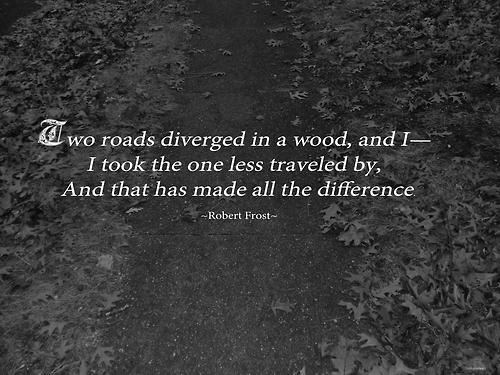 It is here that I spend most of my weekends. While not the tenured position I dreamed of a few years ago, my role at Springfield allows me to make a difference in the lives of my adult students. It was my students, and my own experiences as an adult student, that prompted me to write my first book, Surviving College: The Adults Only Guide. Sales of this book are generally limited to the ones I bought for family members and the twenty or so students who buy it each semester for my Advanced College Level Skills class. No matter. The fact that I am helping these adult students to achieve their dream of a college degree-- a dream I held only twenty years ago--is more reward than book sales.
It is here that I spend most of my weekends. While not the tenured position I dreamed of a few years ago, my role at Springfield allows me to make a difference in the lives of my adult students. It was my students, and my own experiences as an adult student, that prompted me to write my first book, Surviving College: The Adults Only Guide. Sales of this book are generally limited to the ones I bought for family members and the twenty or so students who buy it each semester for my Advanced College Level Skills class. No matter. The fact that I am helping these adult students to achieve their dream of a college degree-- a dream I held only twenty years ago--is more reward than book sales. It was another twist in my road that brought me to Springfield, but it is not time for that story yet. It is time to go back to March 2, 2000, the day that my family will always remember as the beginning of the time we call "After".
Simply stated, our lives changed. Ron was critically injured from the accident and spent, initially, ten months in the hospital. My life became structured around teaching, graduate school, hospital, and home. I had little time to think, but I did have time to journal. My spiral-bound notebook came with me on my journeys; it kept me sane. When Ron was first diagnosed with clinical depression--and later with Bipolar disorder--I thought the worst thing that could happen would be if he could no longer work. I found myself just where I feared I would be, but in addition to loss of his income, I now had a critically ill husband that needed care.
Westtown School became a haven for me. The faculty and the students were, as is the Quaker way, incredibly kind. Fellow teachers would take over my classes to give me a break and every week the students sent homemade cards to the hospital for Ron. Life was not easy, but it became predictable. I was able to take care of most of our financial needs. I was exhausted, of course, but in times of crisis we are given extra adrenalin that keeps us going.
I became the energizer bunny. I was everywhere doing everything, but even the energizer bunny runs out of steam. in 2002, I was pretty much running on empty and needed to face my own limitations as Ron continued to recover from the effects of the car accident. More of this is recounted in my journals, and if you would like to read further, you can read my book, Crazy: Journal of a Recovering Wife.
One medical crisis followed another, with so little space between them that they blurred together. I managed to finish my M.Ed. in 2003 and was "promoted" by the then-principal of Westtown Middle School to the position of "reading specialist." To be fair, Ian meant well. He recognized, even if parents did not, that not all students came to middle school with a firm grasp on reading. Our most recent PAPAS report had indicated the need for a reading specialist at our middle school and Ian was eager to check that off his list. Literally, he called down the hall to me from his open office one day: "Linda, we need a reading specialist. Want to do it?" I nodded, but we never really spoke of it again.
I have often found myself in the position where no one is really sure what my job is and so I am left to my own devices. Sometimes, it is nice. Other times, I really wish that I had some guidance. I had a degree in reading K-12, but I did not really know how to start a reading program. Whats more, I was told that I could not pull students out of class for interventions; I could only pull them from study halls. I had a few cooperative parents who were willing to bring their kids before school, but I never really felt that I was able to get any "buy in" from the rest of the faculty. In fact, I would hear comments such as "Why do we need a reading specialist? All of our students know how to read." Obviously, these teachers--all of whom were well-trained in their fields--did not understand that reading in middle school becomes more content driven and requires different strategies.
For seven years, I faced the storm head-on. I received training in the Wilson Language System, a program much touted among the administration as the end-all to reading problems. I joined the International Dyslexia Society. I did presentations at faculty meetings and wrote papers for the "Brown and White", our school's publication. I wrote a column on reading for our on-line "In the Middle" weekly report. And I pulled kids from study hall and recess to do what I could on an individual level. I also found a secret weapon, Nancy Weigel, reading specialist at the lower school. Nancy, too, was without counterpart in her school, although she had a much better structured program than I did. We began to meet weekly to discuss reading and life. We became dear friends.

Back at the middle school, I had finally been given some responsibility that felt like reading stuff; I was asked to administer and score reading achievement tests to 6th and 8th grade students. I dutifully score the tests, disseminated the results, and made recommendations. None of which was followed.
Double sigh. My next move astounded my family. I had just gotten the books cleared off the dining room table when I announced that I wanted to apply for a doctorate program. I planned to research critical literacy and design a reading program for Westtown Middle School that would knock the socks off of naysayers. I planned to somehow, despite the doubts of the faculty, find a way to make reading a priority at Westtown. I wanted to find a way to make a difference.
 I enrolled in Walden University more for its convenience than anything. As a totally on-line program, I wouldn't have to find the time to attend classes. I could work from my home whenever I had the time. I could even, as it turned out, work from Ron's various hospital rooms. In 2006, I was accepted in the Ed.D. program and began yet another journey down a slightly different road.
I enrolled in Walden University more for its convenience than anything. As a totally on-line program, I wouldn't have to find the time to attend classes. I could work from my home whenever I had the time. I could even, as it turned out, work from Ron's various hospital rooms. In 2006, I was accepted in the Ed.D. program and began yet another journey down a slightly different road.It seemed as if the path kept changing.





